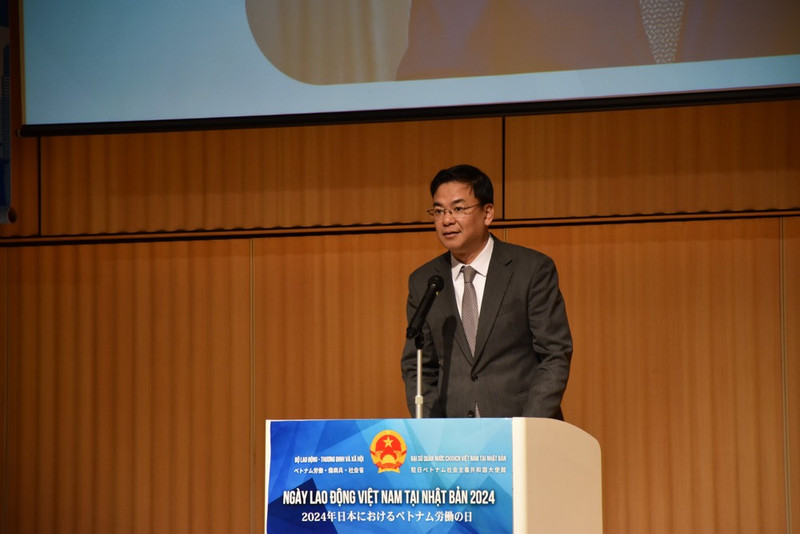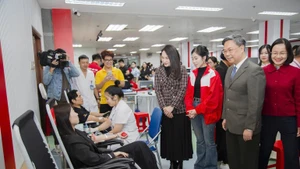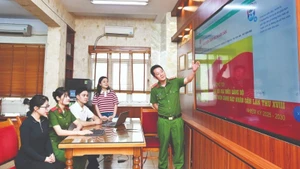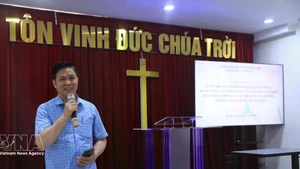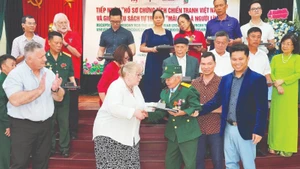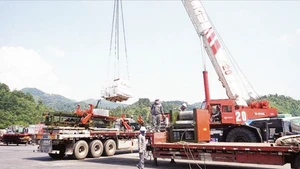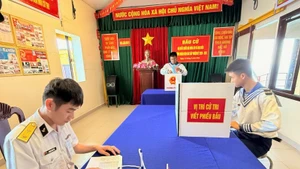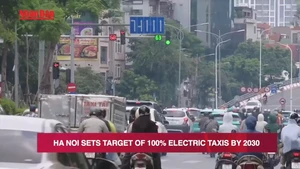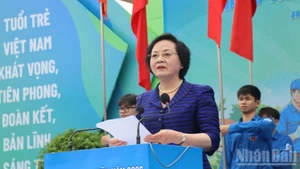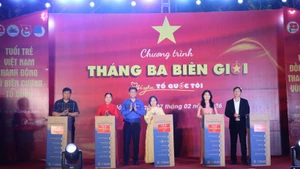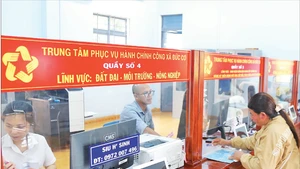This marked the first major event for Vietnamese labourers in Japan, attracting approximately 500 participants, including outstanding Vietnamese workers, representatives from unions, and Japanese businesses employing Vietnamese labourers.
In his opening remarks, Ambassador Pham Quang Hieu emphasised that the event reflects the attention of the MoLISA and the embassy to Vietnamese residing and working in Japan, as well as to the work of bringing Vietnamese labourers to the Northeast Asian country.
Japan is home to over 430,000 Vietnamese guest workers employed under various residency statuses, including interns, specified skilled workers, engineers, technicians, and interpreters.
The diplomat expressed confidence that, alongside the growing cooperation in human resources between the two countries, the Vietnamese labour community in Japan will continue to develop, and support and care for one another.
Referring to recent changes in Japan's policies on foreign labour intake, Hieu acknowledged these developments as favourable for foreign workers, including those of Vietnam, as such changes would help better ensure their legitimate rights and interests while providing greater opportunities for their personal and professional growth in Japan.
As Vietnam is on the threshold of a new phase of development, presenting numerous opportunities for socio-economic and human advancement, it will require a skilled, disciplined workforce trained and matured in developed nations like Japan.
Therefore, workers who have undergone training and experiences in Japan will become valuable human resources for Vietnam in this new development phase; and also serve as key contributors to fostering the sustainable growth of the friendship and cooperation between the two countries, added Hieu.
MoLISA Deputy Minister Nguyen Ba Hoan stated that in recent years, Vietnamese trainees and workers in Japan have accounted for more than half of the total number of Vietnamese workers abroad.
Hoan emphasised that ensuring and enhancing the legitimate rights and interests of Vietnamese interns and workers in Japan facilitates the development of a symbiotic society there. This also contributes to providing quality human resources for receiving businesses and Japan as a whole.
In this spirit, he called for improvements in the benefits and welfare systems for the group, particularly during the current challenging period marked by a weakened yen and rising living costs in Japan.
Japanese State Minister of Justice Komura Masahiro said that under the framework of the new Training and Employment System, Japan will strive to address existing issues in the Technical Intern Training Programme, such as high brokerage fees and the involvement of illegal brokers. Japan will collaborate with sending countries, including Vietnam, to ensure a healthy working environment and promote the development of foreign human resources.
He expressed his hope that the two countries will continue to work closely to solve remaining challenges to ensure that Japan remains an attractive destination for Vietnamese workers.
